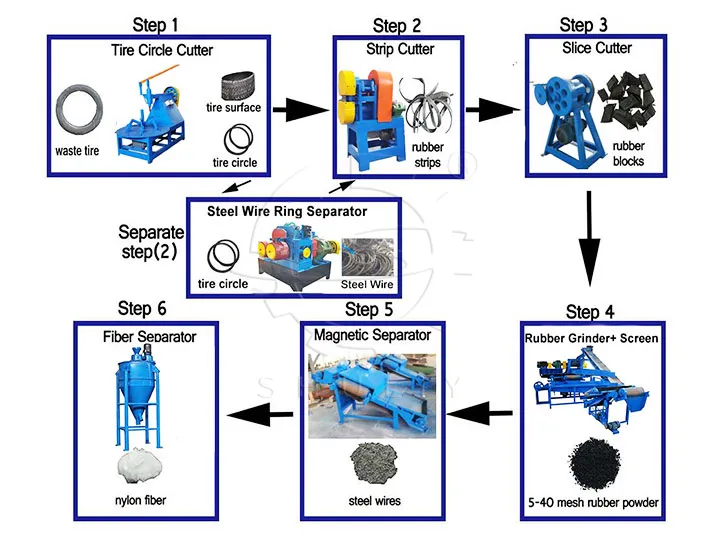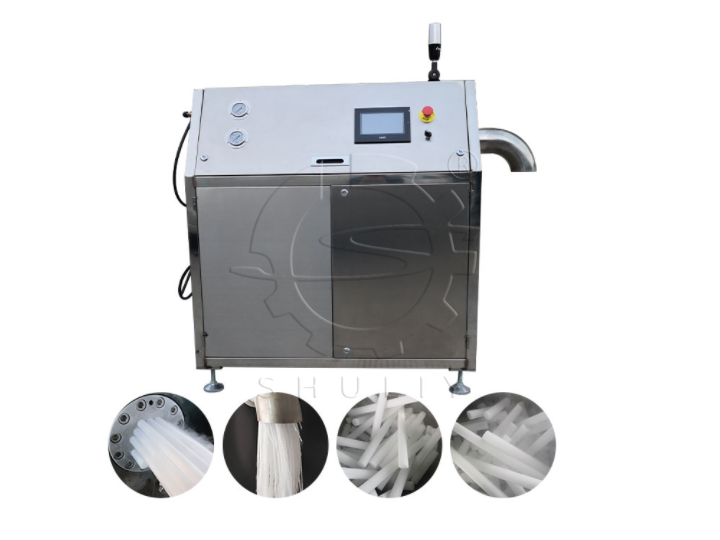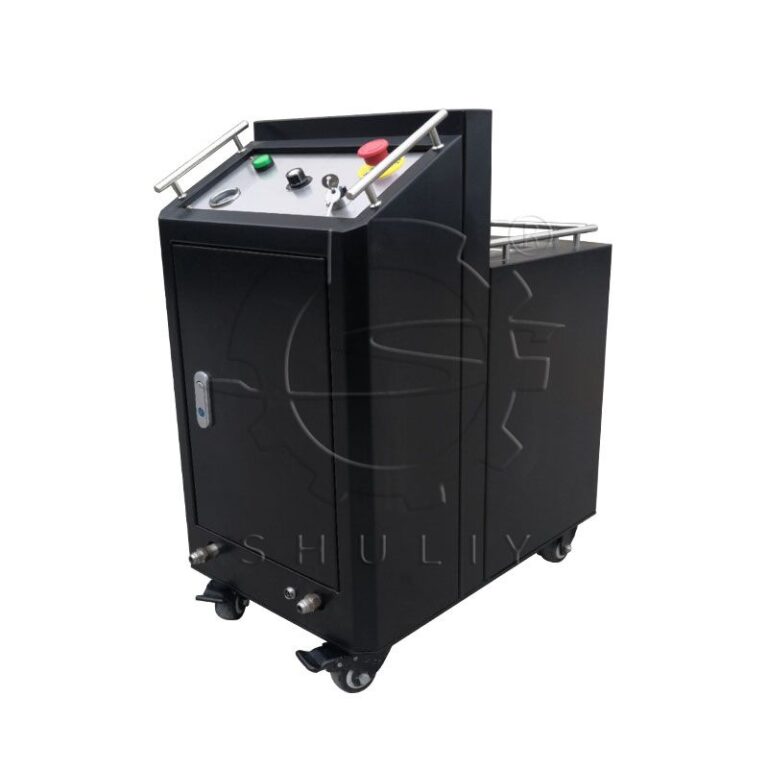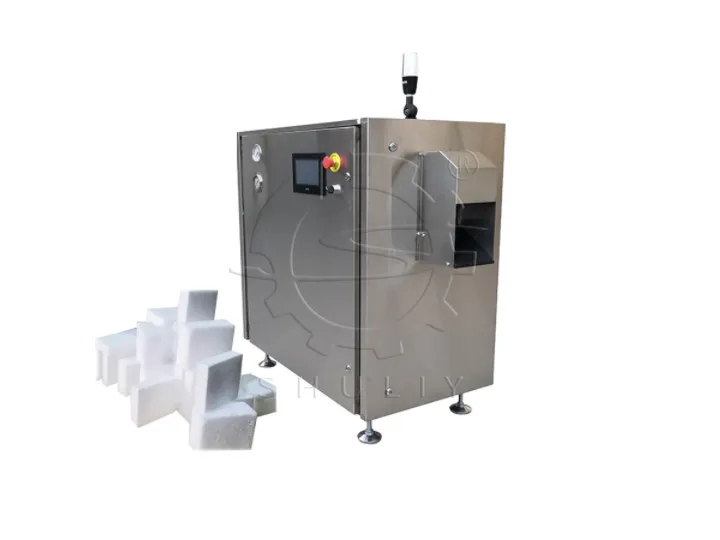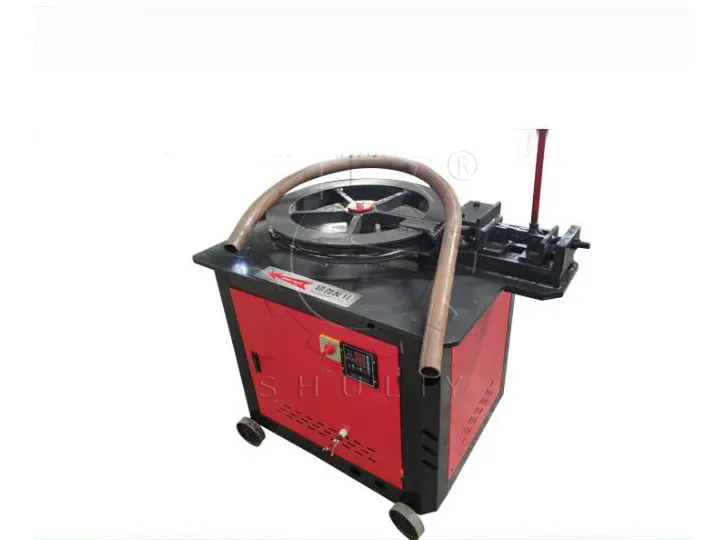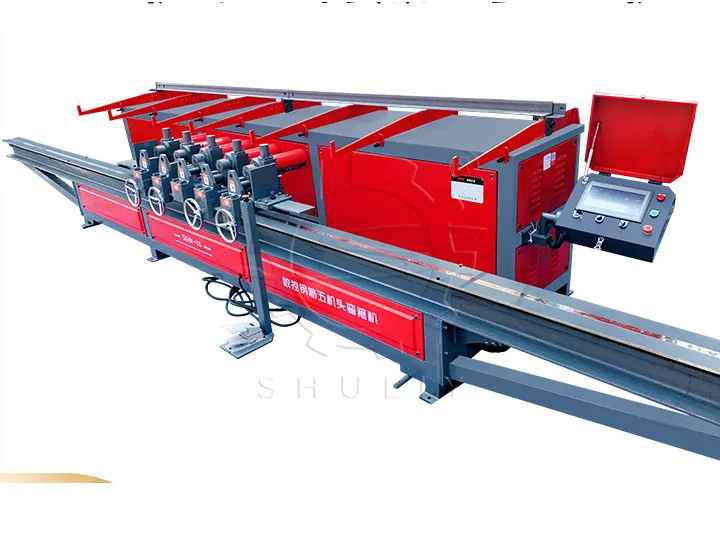शुली अर्ध-स्वचालित स्क्रैप टायर रिसाइक्लिंग प्लांट स्वचालित उपकरण और मानव-सहायता पूर्व प्रसंस्करण को संयोजित करता है ताकि वेस्ट टायर्स (≤1200 मिमी) को कुशलतापूर्वक रबर पाउडर में परिवर्तित किया जा सके, जिसका कण आकार 10-40 मेष के लिए समायोज्य है। यह अपनी उच्च लागत-प्रदर्शन अनुपात और स्थायित्व के कारण विश्वभर में लोकप्रिय है।
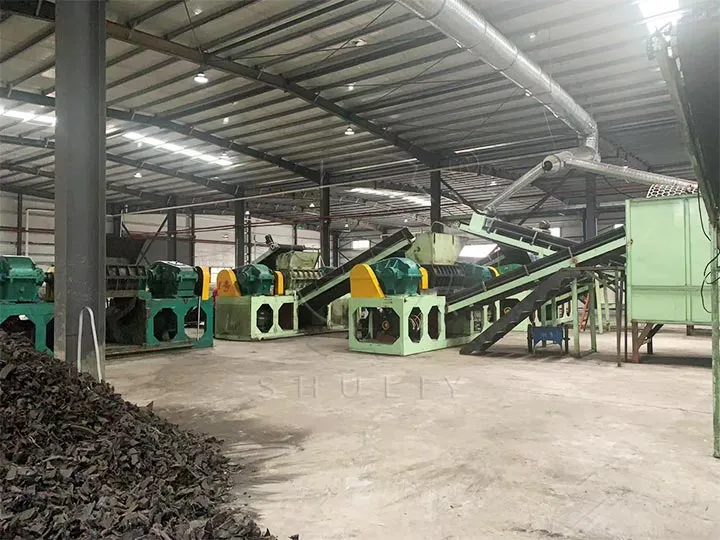
शुली सेमी-ऑटोमैटिक स्क्रैप टायर रीसाइक्लिंग प्लांट की प्रमुख विशेषताएँ
- व्यापक अनुप्रयोग: 1200 मिमी तक के व्यास वाले सभी बेकार टायरों के लिए उपयुक्त, जिसमें यात्री कार, ट्रक और बस के टायर शामिल हैं।
- लागत-कुशल: सीमित बजट वाले छोटे से मध्यम आकार के रीसाइक्लिंग प्लांट के लिए एक आदर्श विकल्प।
- कस्टमाइज़ेबल आउटपुट: उत्पादन क्षमता को आपकी विशिष्ट प्रसंस्करण आवश्यकताओं के अनुसार अनुकूलित किया जा सकता है।
- समायोज्य रबर पाउडर आकार: अंतिम रबर पाउडर का आकार 0.63 से 2.5 मिमी के बीच होता है और इसकी शुद्धता 99% से अधिक होती है।
- मॉड्यूलर डिज़ाइन: टायर साइडवॉल कटर, स्ट्रिप कटर, ब्लॉक कटर, स्टील वायर सेपरेटर, श्रेडर, ग्राइंडिंग और मैग्नेटिक सेपरेशन सिस्टम, और फाइबर सेपरेटर जैसी मशीनों को व्यक्तिगत रूप से या एक संपूर्ण लाइन के रूप में कॉन्फ़िगर किया जा सकता है।
- टिकाऊ निर्माण: प्रमुख भाग पहनने-प्रतिरोधी सामग्रियों जैसे 5Cr6MnMo से बने होते हैं, जो दीर्घकालिक सेवा जीवन और कम रखरखाव सुनिश्चित करते हैं।
- कम श्रम की आवश्यकता: केवल 2–4 श्रमिकों की आवश्यकता के साथ सरल संचालन।
- ऊर्जा कुशल: पारंपरिक टायर रीसाइक्लिंग उपकरण की तुलना में 30% कम ऊर्जा की खपत करता है, जिससे संचालन लागत कम होती है।
- संक्षिप्त आकार: स्थान-बचत लेआउट, स्थापित करने और बनाए रखने में आसान।
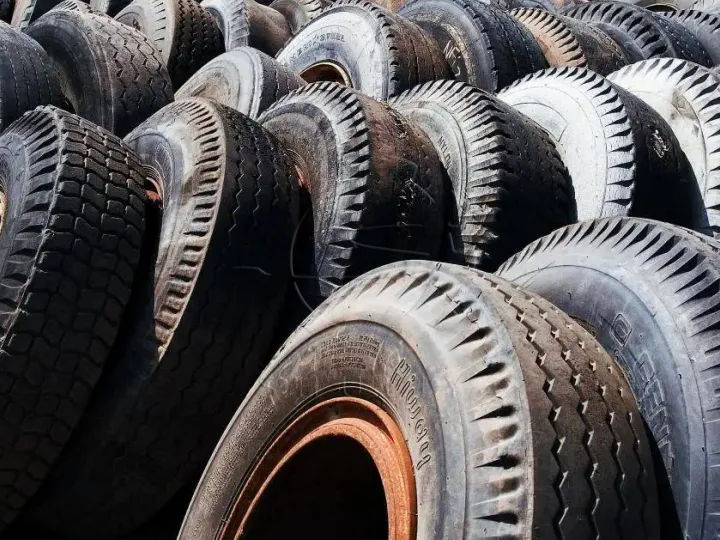
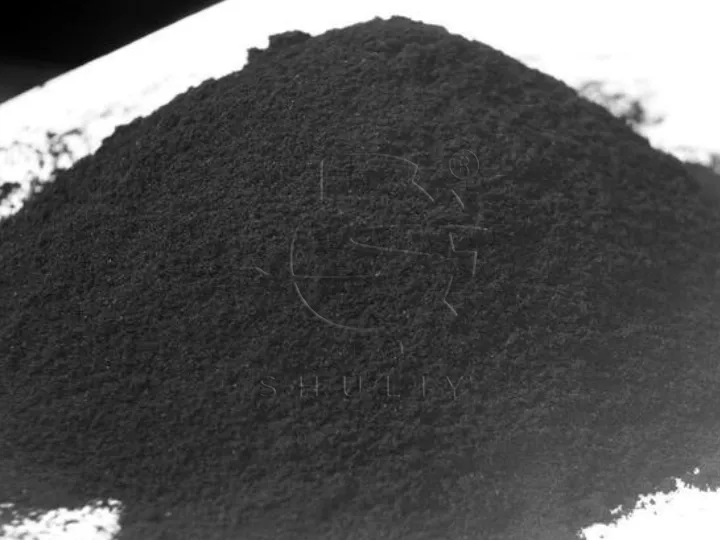
कचरे के टायर पुनर्चक्रण संयंत्र की कार्यप्रणाली
पूर्ण अर्ध-स्वचालित स्क्रैप टायर रिसाइक्लिंग संयंत्र प्रक्रिया: टायर साइडवॉल कटर→टायर स्ट्रिप कटर→टायर ब्लॉक कटर→टायर स्टील वायर अलग करने वाला→टायर ग्राइंडर और चुंबकीय अलग करने वाले→फाइबर अलग करने वाला
पूर्व उपचार: टायर साइड वॉल कटर टायर बीड में लगे स्टील रिम्स को हटा देता है। फिर स्ट्रिप और ब्लॉक कटर टायर साइडवॉल को 3-5 सेमी चौड़े स्ट्रिप्स और 5*5 सेमी ब्लॉक्स में बारी-बारी से काटता है।
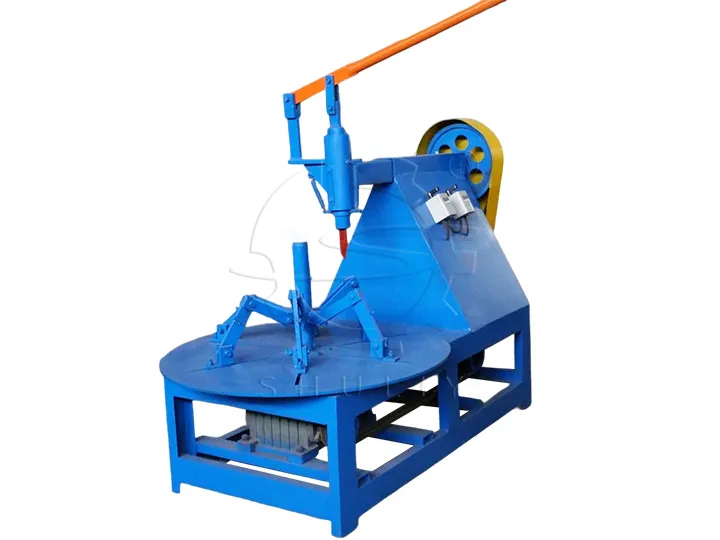
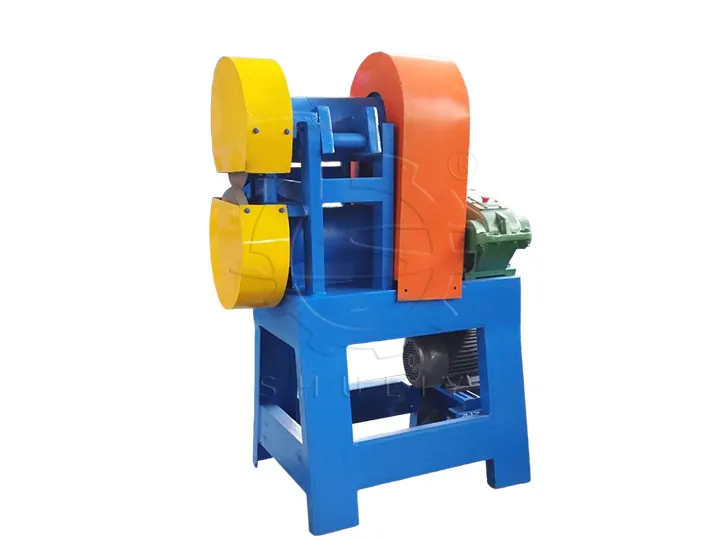
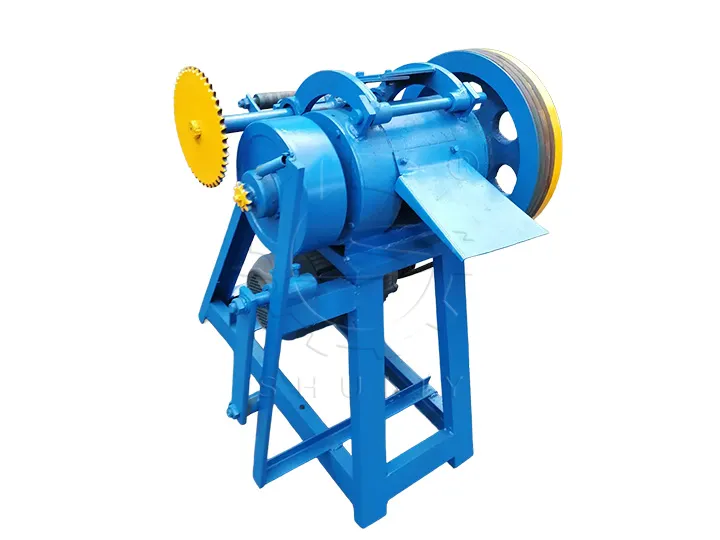
स्टील वायर अलगाव: स्टील वायर Separator कुशलता से रबर को बीड वायर से अलग करता है ताकि इसे वर्गीकृत पुनर्चक्रण के लिए इस्तेमाल किया जा सके। यह मशीन अर्ध-स्वचालित स्क्रैप टायर पुनर्चक्रण संयंत्र में वैकल्पिक है।
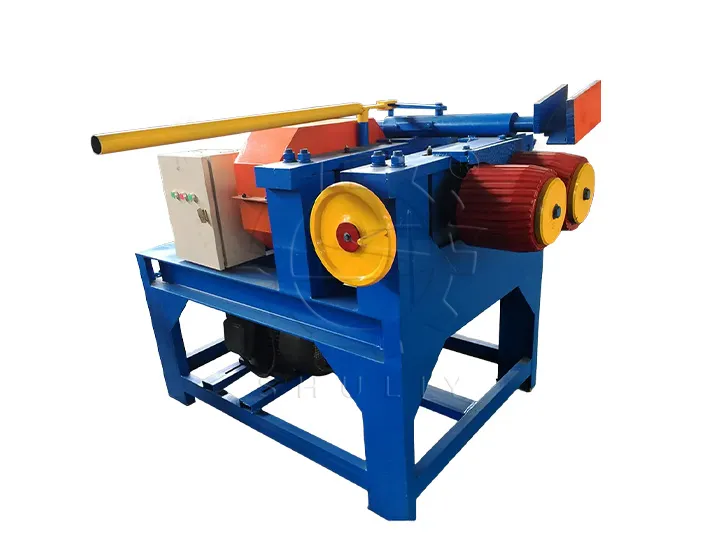
पीसने और छानने: टायर पीसने की मशीन और स्क्रीन के माध्यम से, यह पूर्व-निर्धारित आकारों में रबर पाउडर उत्पन्न कर सकता है।
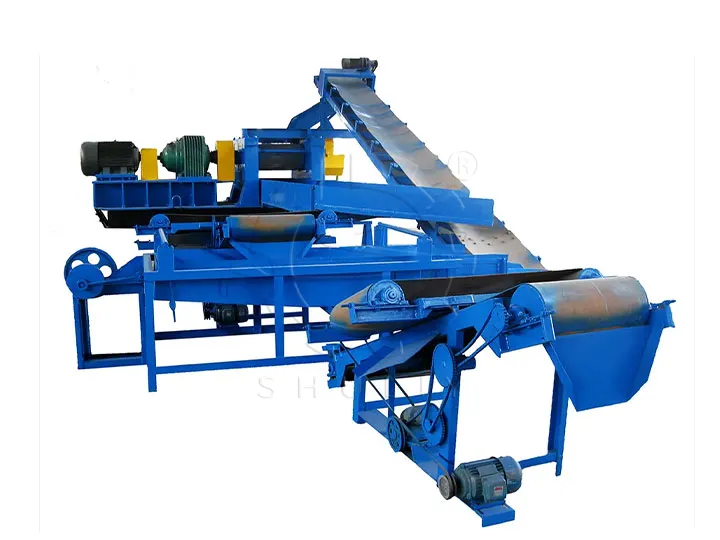
Impurities को हटाना: मल्टी-स्टेज मैग्नेटिक सेपरेटर और फाइबर सेपरेटर को मैग्नेटिक्स और फाइबर को हटाने के लिए डिज़ाइन किया गया है। अंततः 99% से अधिक शुद्धता के साथ बारीक रबर पाउडर का उत्पादन किया जा सकता है, जिसका उपयोग औद्योगिक निर्माण में किया जा सकता है।
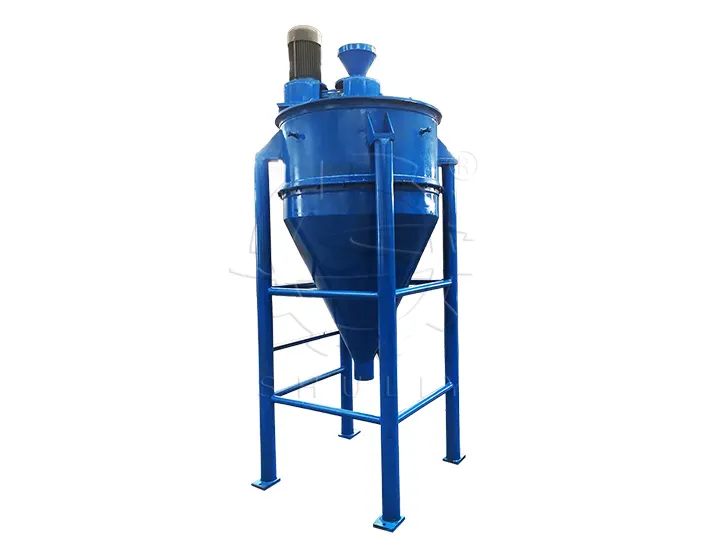
कचरा टायर रीसाइक्लिंग संयंत्र की लागत
स्क्रैप टायर रीसाइक्लिंग प्लांट स्थापित करना एक लाभदायक और टिकाऊ व्यवसाय है क्योंकि पुनर्नवीनीकरण रबर की वैश्विक मांग लगातार बढ़ रही है।
टायर रीसाइक्लिंग व्यवसाय शुरू करने के लिए, आपको निम्नलिखित के लिए बजट बनाना चाहिए:
- मशीन की लागत: सेमी-ऑटोमैटिक लाइन जिसमें टायर साइडवॉल कटर, ग्राइंडर आदि शामिल हैं, शुरू होती है $24490, क्षमता के अनुसार।
- कारखाने की जगह: किराया या निर्माण की लागत स्थान के अनुसार भिन्न होती है।
- कच्चा माल:废弃 टायर आमतौर पर स्थानीय रूप से प्राप्त किए जाते हैं; प्रारंभिक स्टॉक की आवश्यकता हो सकती है $1,000–$5,000.
- श्रम: केवल आवश्यकता है 2–4 श्रमिक; मासिक वेतन स्थानीय दरों पर निर्भर करता है।
- बिजली: 1 टन रबर पाउडर का उत्पादन करने में खर्च होता है 150–180 kWh, ऊर्जा बिलों में बचत करने में मदद करता है।
- रखरखाव और पहनने के भाग: 5Cr6MnMo जैसे टिकाऊ सामग्रियों के कारण कम लागत।
- शिपिंग और स्थापनादेश के अनुसार भिन्न होता है, आमतौर पर $2,000–$8,000.
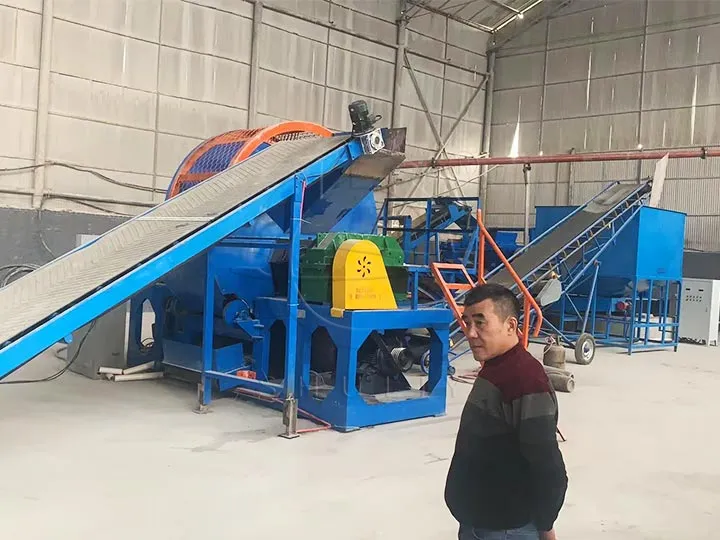
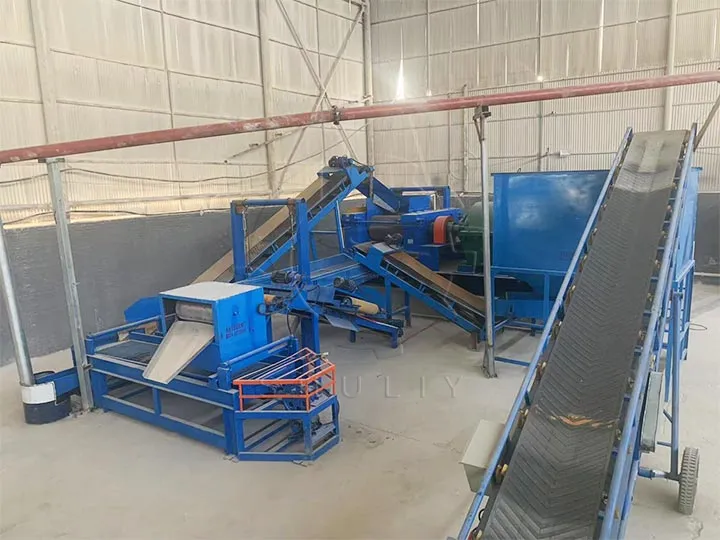
शुली में, हम आपके निवेश और संचालन लागत को कम करने में मदद करने के लिए अनुकूलित रिसाइक्लिंग समाधान प्रदान करते हैं। चाहे आपका लक्ष्य रबर ग्रेन्यूल्स का उत्पादन करना हो या एक पूर्ण रबर पाउडर उत्पादन लाइन चलाना हो, हमारा उपकरण विश्वसनीय, स्थान-बचत करने वाला और ऊर्जा-कुशल है।
व्यक्तिगत प्लांट योजना और उद्धरण प्राप्त करने के लिए हमसे संपर्क करें!

